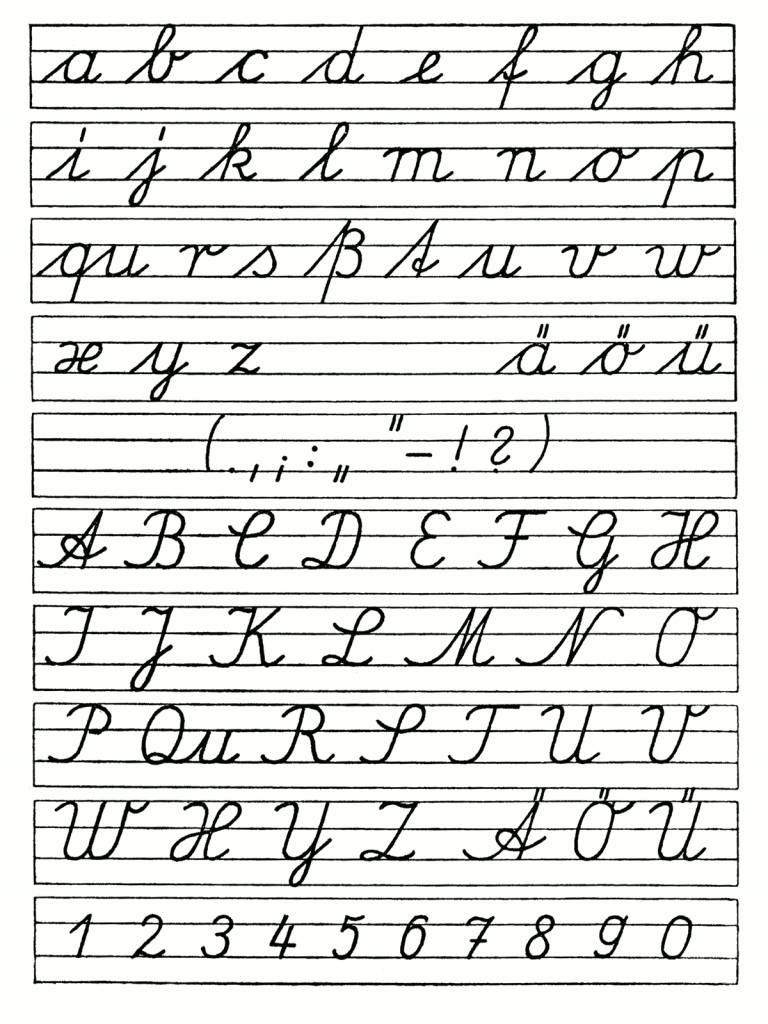This Is How German Letters Sound Posted by Sten on Dec 12, 2019 in Grammar, Language
When you learn a new language, it is sometimes hard to get the pronunciation just right. You’re met with a blank stare, the native has no clue what you’re trying to communicate. Sure, you could try describing it, but what if you know the word, know how it’s written, but just not really how to say it? Well, then you can simply buchstabieren (to spell) the word! Here’s how those Buchstaben (letters) sound in German!
Are you looking for the phonetic alphabet (Alpha, Bravo, Charlie…) instead? We got you covered!
The Sound of German Buchstaben
The Alphabet (alphabet) is useful in any language – especially if you know how to say each individual letter! Here it is:
As you can see, the German Alphabet has four extra characters compared to the English one – ä, ö, ü and ß. The umlauts are regular letters in German, and are also used as such. You can find them on any version of a German computer Tastatur (keyboard) on the right of the L and P. The Esszett can also not be missing, and so it is also included at the end.
Here’s a little practice round for you to try and see if you can buchstabieren the words!
Hallo! Ich suche Eichhörnchen, die ich fotografieren möchte.
– Entschuldigung, was suchen Sie? Ich habe Sie nicht verstanden.
Eichhörnchen!
– Eicheln?
Nein. Ich buchstabiere es mal: E-I-C-H-H-Ö-R-N-C-H-E-N.
– Ach, Eichhörnchen! Ja, die finden Sie bestimmt im Stadtpark. Viel Erfolg!
(Hi! I am looking for squirrels, who I want to take pictures of.
– Excuse me, what are you looking for? I didn’t understand you.
Squirrrels!
– acorns?
No. I’ll spell it: S-Q-U-I-R-R-E-L-S.
– Oh, squirrels! Yes, I am sure you can find them in the city park. Good luck!)
Did this help you? Do you have any questions? Let me know in the comments below!

Build vocabulary, practice pronunciation, and more with Transparent Language Online. Available anytime, anywhere, on any device.





Comments:
m:
Although I am several years into studying the German language, I still confuse the pronunciation of der Buschstabe “e” with “i”. Any suggestions? My brain on German …lol!
Sten:
@m Hi!
Haha, I can understand that, they’re pretty similar! It could help to exaggerate the pronunciation. What I notice myself is that with the “e”, I tend to widen my cheeks, like I am smiling, whereas for the “i”, I can feel the muscles in my throat moving more vertically.
Perhaps this sentence can help:
Kleben die Stifte neben den Wiegen? (Do the pens stick next to the cradles?) – doesn’t make any sense, but it gives you some of those sounds!
Anne:
Very intreseting Blog 🙂